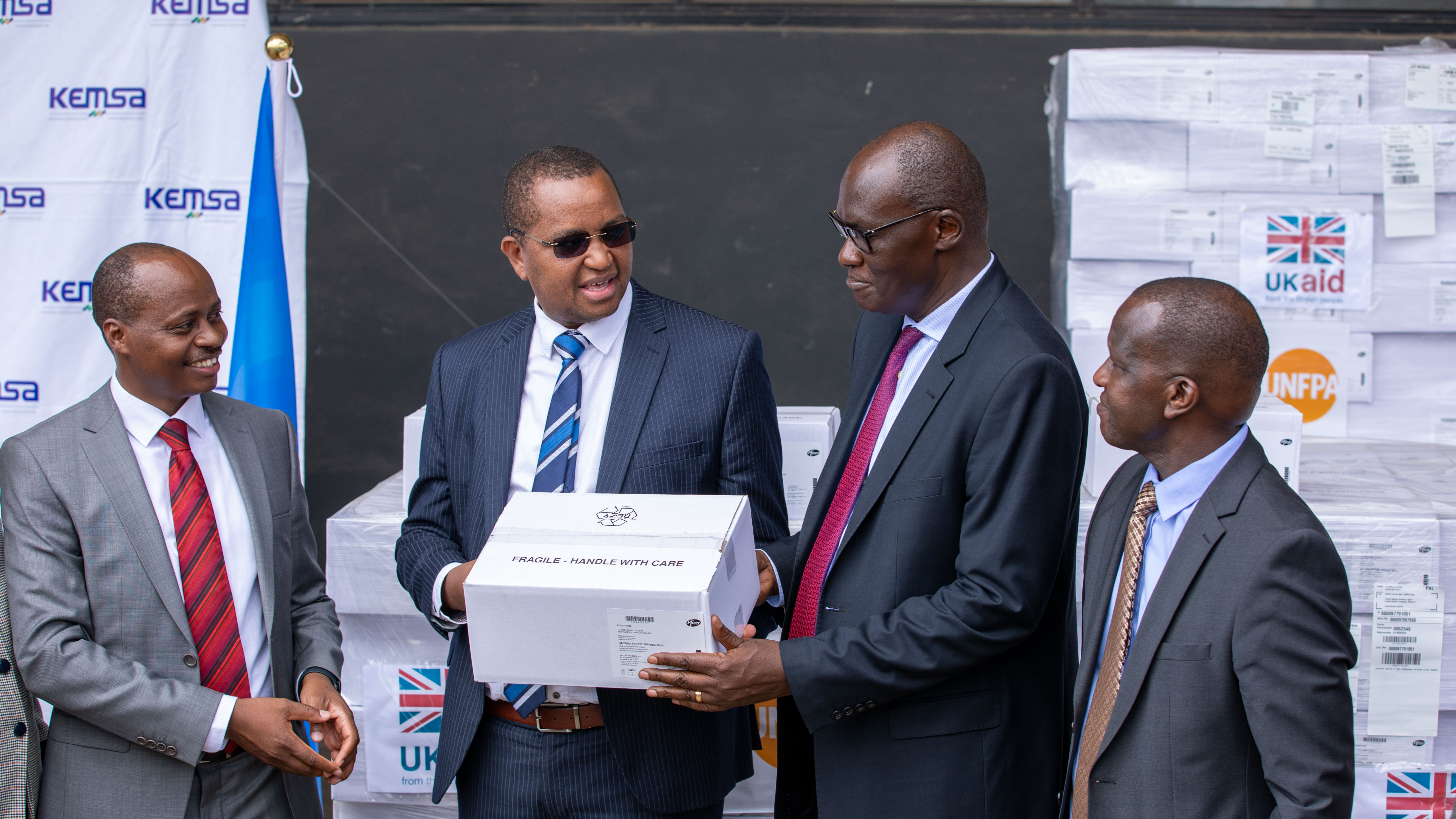KEMSA to distribute 450,000 doses of injectable contraception
Contraception

KEMSA
received donations
of 450,000 doses of a self-injectable contraceptives from UNFPA for distribution
across three months.
The contraception, scientifically known as Depot Medroxy-Progesterone-Acetate (DMPA), was
procured by UNFPA with Sh57 million (£348,000) funding from the UK government.
"This milestone
underscores our collective commitment to addressing the unmet need for family
planning services and improving health outcomes for women and families across
Kenya," Health CS Susan Nakhumicha said. She was represented by acting director
general Patrick Amoth at the Kenya Medical Supplies Authority in Nairobi.
The CS said the Kenya
Demographic and Health Survey Key Indicator Report of 2022 showed Kenya has an
unmet need for family planning of 14 per cent, with a target of reducing it to
single digits by 2030.
Nakhumicha said Kenya has a
target of modern contraceptive prevalence rate of 64 per cent by 2030, against
the current 57 per cent.
"Beyond the numbers, the
impact of our efforts is profound and far-reaching. By averting unintended
pregnancies, maternal deaths and unsafe abortions, we are not only safeguarding
the health and well-being of our citizens but also fostering socio-economic
development and prosperity," she said.
UNFPA said the Subcutaneous
Depot Medroxyprogesterone Acetate doses will simplify and enhance the
accessibility of family planning.
The UN agency described the
DMPA-SC as user-friendly, saying it can be administered by trained individuals
including community health workers and women themselves.
UNFPA said the government has
made significant progress in promoting access to family planning, with the
modern contraceptive prevalence rate rising to 57 per cent in 2022, up from 53
per cent in 2014.
During the same period, the
unmet need for family planning was reduced from 18 per cent to 14 per cent.
Despite the progress,
however, barriers such as the high financial cost of access and uncertainty
over supply continue to hinder efforts to meet the demand for family planning.
"Funding for the family
planning programme is a vital component of the support we receive from the UK
government, as it ensures that women can access and choose from a range of
quality family planning methods, no matter where they live in the country,"
UNFPA Representative Anders Thomsen said.
"This in many ways helps
us deliver on the commitment to end preventable maternal deaths."
In 2023, UNFPA supported the
Ministry of Health in expanding access to family planning commodities and
services by procuring a range of family planning methods distributed to more
than 6,000 health facilities in the 47 counties.
The commodities served more
than 2.5 million women of reproductive age.
In his address during the
handover, deputy development director at the British High Commission, Eduarda
Mendonca-Gray, said sexual and reproductive health and rights are a key
priority for the UK.
"The evidence confirms
that access to and availability of family planning commodities reduces poverty,
enhances prosperity and provides dignity for women," he said.
He said they will remain
committed to working collaboratively with the Ministry of Health to empower
women to plan for their lives and future and to decide when to have children by
choice not by chance.
The UK government has been a
longstanding partner of UNFPA and the Government of Kenya in efforts to ensure
Kenyan women and girls have access to sexual and reproductive health
information and services.
The
contraceptives handed over on Thursday are expected to benefit more than
400,000 women of reproductive age, contributing to the prevention of 42,750
unintended pregnancies and 122 maternal deaths.